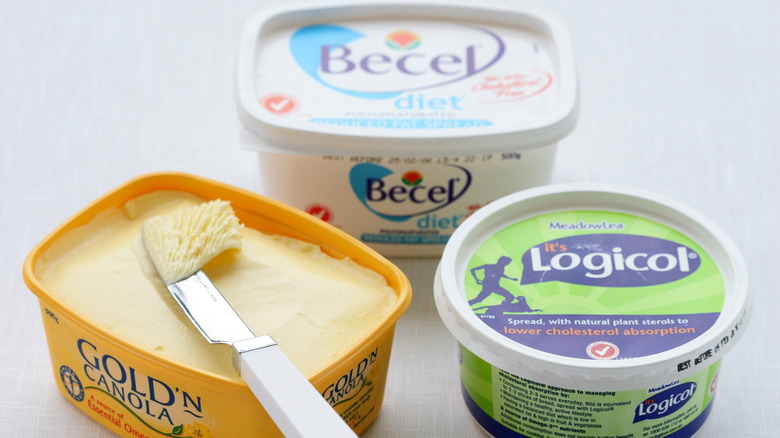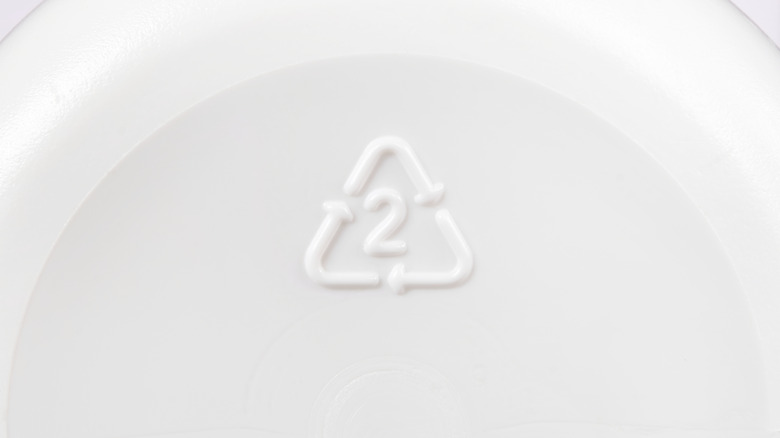Is It Safe To Reuse Empty Butter And Margarine Containers?
It's hard for 21st-century dwellers to imagine a world without plastic. This durable man-made material is everywhere: perched on your deck in the form of lawn furniture, hiding in your kitchen cupboards disguised as food containers and cups, and riding in your car dressed up as mere fit and finish. Yes, Americans have become very comfortable with their plastics. In fact, the EPA admits that in 2018 alone, the United States produced 35.7 million tons of it. Trying to picture what that much plastic looks like is a near-impossible feat. Perhaps, there are better ways to illustrate this global love affair with plastic.
The LEGO brick is a prime example of how plastic has revolutionized our world. According to the Franklin Institute, LEGO has made the equivalent of 62 bricks for every human on earth and that if all world's bricks were snapped together, they would make "10 towers reaching all the way from the Earth to the Moon." That's a lot of plastic. And that's only one product.
While people drink from plastic cups, store their food in plastic containers, and let their children suck on plastic toys, it wasn't all that long ago that Americans were very leery of this new-fangled, chemical-based material. American History Museum explains that, following WWII, plastic was viewed as "being smelly and greasy," while PBS added that people thought it would "break, chip, or melt." And there are still certain plastics that we should use with care.
Learning proper recycling could save your health
There are some important facts you should know before storing your food in a plastic container. If you have a large stash of margarine, butter, or other food containers that you like to store food in, you may be jeopardizing your health. Allrecipes warns that any plastic labeled with a #3, #6, or #7 is made for one-time use and should be placed in your recycling. Taste of Home goes on to explain that anything bearing #7 contains BPA, which is a known health hazard. The outlet also states that items stamped with #1 contain PET, another substance that should not be re-used.
Some chemicals that make up the recipe for plastics can leach into your foods, and Harvard Health adds that this leaching happens quicker and in a larger amount when heated. It is, therefore, recommended that you never microwave edibles in plastic, especially in a container that was designed for a single use. Time Magazine even warns against drinking from PVC garden hoses, as they release chemicals that have been linked to liver cancer.
While plastic is highly prevalent in our modern-day world, people shouldn't assume that it's always harmless. Recycle your plastic tubs that once housed other products. Learn what the recycling symbols on your plastics mean. Switch to glass containers for reheating. And stop drinking from that vinyl hose.

